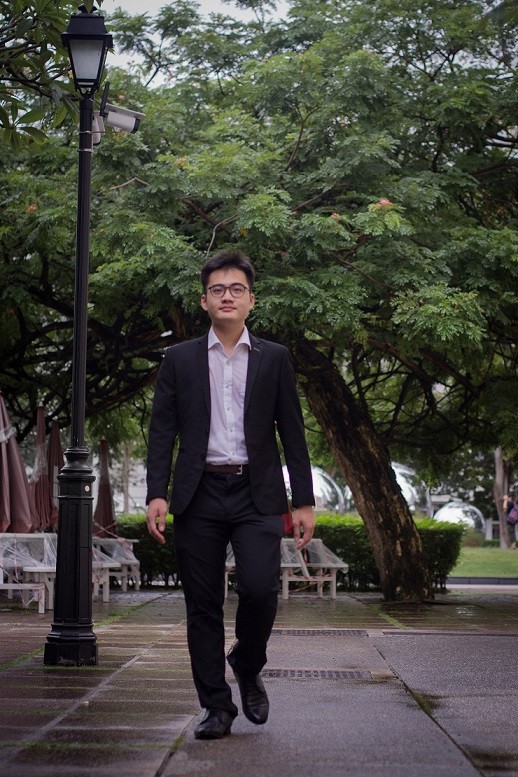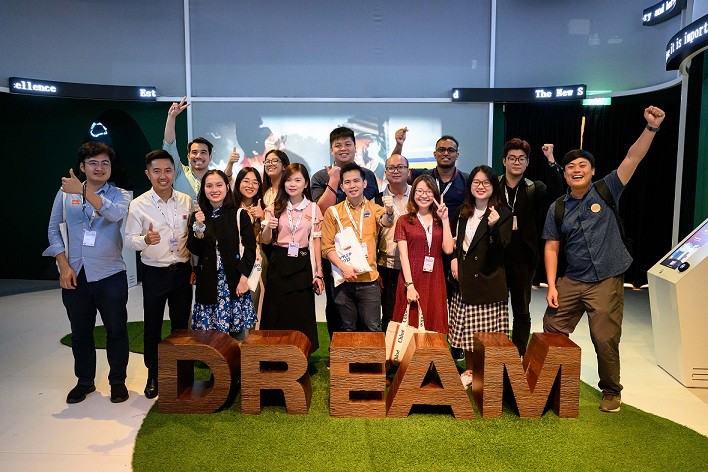
Devotion to building young Vietnamese intellectual community in Singapore
Latest
 |
| Mai Tuan Minh is currently a student at Nanyang Technological University, Singapore. (Photo provided by the character) |
Could you share the reasons for choosing Singapore as a study destination and its educational environment for young people planning to study abroad?
I am currently a fourth-year student majoring in Electrical and Electronics Engineering at Nanyang Technological University. I chose Singapore for my studies for several compelling reasons. Singapore stands out as a safe country, boasting high-ranking educational institutions recognized globally. The Vietnamese student community here is vibrant and continuously evolving, providing a supportive network. My proficiency in English has notably improved during my time here, enabling me to access and benefit from a vast array of high-quality academic materials.
However, one issue in Singapore is the pressure. As Singapore lacks natural resources, its main asset is the 'gray matter' of its people. Newcomers should be prepared to withstand this pressure and swiftly adapt to the fast-paced and demanding surroundings.
You are known as a co-founder of the Young Vietnamese Intellectuals Network in Singapore?
I have dedicated six years to the Vietnamese Students Association in Singapore, and now my focus is on nurturing the Vietnamese intellectual community within this dynamic city-state.
The establishment of the Vietnamese Intellectuals Network in Singapore (VINS) was driven by the necessity to create a platform where the strong and homeland-oriented student community can converge and thrive. The network is envisioned as a bridge that connects the Vietnamese youth with their cultural roots and current affairs in Vietnam.
This connection aims to ease the transition for those who wish to return and contribute to Vietnam, eradicating any hesitancy caused by potential cultural reverse shocks. By doing so, VINS aspires to facilitate these young intellectuals in making substantial contributions to the economic development of Vietnam and in accelerating their professional integration upon their return.
Looking ahead, VINS aims to become a hub for intellectual engagement and collaboration, attracting widespread participation from the Vietnamese intellectual diaspora in Singapore – a facet that is currently underrepresented. This year, we are committed to actively participating in various events and establishing connections with numerous enterprises to lay the groundwork for our activities in the forthcoming year.
The government and state are particularly interested in attracting intellectual resources from the Vietnamese diaspora for national development. What are your thoughts on this?
Every international student, including myself, grapples with the decision of whether to stay abroad or return home after their studies. However, I believe that one can contribute to their homeland from anywhere in the world – a mindset that reflects a broader and more inclusive understanding of national contribution.
My field of study, Electrical and Electronic Engineering, aligns closely with cutting-edge technologies such as semiconductors and artificial intelligence. While Vietnam's universities provide robust technical and technological education, there is a noticeable gap in practical industry experience. Facilitating student exchange and internship opportunities in technologically advanced countries like Singapore could significantly address this shortfall.
Moreover, there's potential for academic institutions to form partnerships, creating dual degree programs or specialized courses that leverage Singapore's advanced facilities and infrastructure. Such collaborations could lead to more efficient and impactful human resource development.
We can also organize cross-country forums focusing on specialized fields, enabling the exchange of expertise and experiences. Such platforms would enrich the professional landscape in Vietnam, adding diverse perspectives and knowledge.
 |
| Young Vietnamese intellectuals in Singapore. (Photo provided by the character) |
What challenges do young Vietnamese intellectuals face in contributing their intellect to the country?
One major obstacle is the cultural reverse shock experienced by young intellectuals when they return to Vietnam after an extended period abroad. The differences in legal and administrative systems between Vietnam and foreign countries can pose significant adaptation challenges.
I believe that in addition to the desire for a conducive academic environment, another deep-seated concern among intellectuals is the lack of direct channels for effectively conveying their insights and proposals. Often, intellectuals who offer suggestions do not feel adequately recognized or valued. Therefore, establishing mechanisms to demonstrate the positive impacts of their initiatives could encourage more active and enthusiastic participation and contributions.
Thank you very much!

















